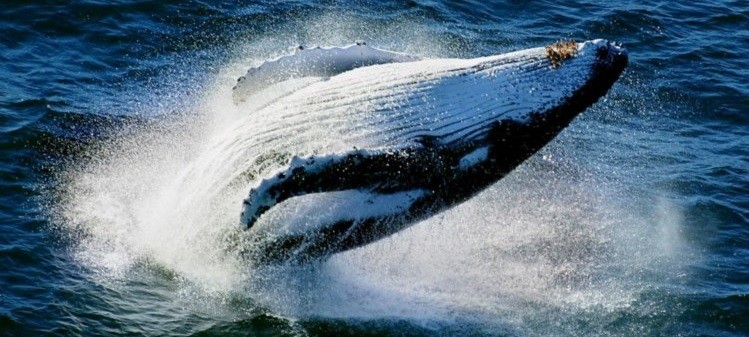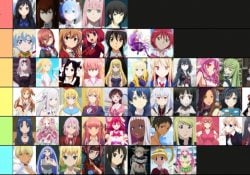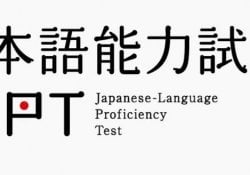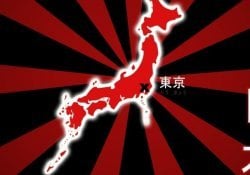It is very common for news to come out on the internet about whaling in Japan. And among the comments, many ignorant people release hateful words without even knowing what really happens. Why do the Japanese hunt whales?
Let's also understand why you shouldn't act like an idiot and criticize an entire country because of a paltry 0.000000000000000001% of Japanese whaling workers.
Before we talk about why the Japanese hunt whales, what is involved, what controversies this generates in the country, we need to understand all the history, curiosity and culture surrounding this controversial system.
Hongei - The capture of whales
Hongei [捕鯨] is the Japanese word for catching whales and dolphins. Currently the hogei can refer to three different types of catch: commercial catch, research catch, and surviving native whales that are rescued.
In Japan, whaling has been practiced since prehistoric times, their own techniques were developed that are different from those in the West. During the Edo period, systematic whaling was carried out by a large group called Hogeishudan [捕鯨集団].
There is a long history of whaling in Japan and the West. We do not want to enter or give credit to the practices of the hongei, but in case you are curious, just read the japanese wiki or search for hogei [捕鯨] or nihon no hogei [日本の捕鯨].
The history of whaling
Since AC, ruins have been discovered that are presumed to have been used for whaling. In Japan, whale bones have been found in the remains of the Jomon Period, and whaling has also been found in the Korean version of prehistoric sculpture. bangedaiiwa.
In Europe, whaling by the Basques became popular in the 11th century. In the past, it was mainly used to collect whale meat and oil. Over time, different weapons were created to capture whales.
In Japan, a unique whaling technology developed in the Nara era of the 8th century. The word "Isanatori“, which means whaling, has appeared in the literature. In the beginning, it was a method of whaling that used a sword called "push type".
In the 16th century, a sword was used to kill whales. In the second half of the 17th century a technique was developed that involved netting. Whales were difficult to capture because they swim fast and sink into the water when they die.
The group of whale hunters has grown into a large organization with thousands of people, from catching to dismantling, extracting whale oil, salt whale meat and others. Japan is believed to have captured over 21,000 whales throughout history.
A unique culture was born with the workers involved in whaling. In Japan, a culture of prayer for great safe fishing, gratitude and mourning for whales was born in many places, particularly among whaling workers.
How has whaling been in recent decades?
In 1974, the IWC adopted the “New Management Method (NMP)”. After that, commercial capture of Nagas whales and sardines was banned one after the other. In 1982, the IWC decided to suspend commercial whales. Japan also accepted in 1985.
In 1987, Japan began capturing mink whales for research in Antarctic waters. In 1988, Japan stopped the whale and mackerel trade in the North Pacific. In 1994, the IWC adopted the “Revised Management Method (RMP)”.
In 1997, Norway officially admitted that there was a commercial catch of mink whales in the North Atlantic. In 2006, Iceland declared the resumption of commercial capture of mink whales in the North Atlantic (resumed the following year).
In 2010, the Norwegian Ministry of Fisheries and Coastal Affairs announced that it would increase the quota for commercial whales to 1286, the highest number ever. In 2018, Japan announced that it would withdraw from the IWC and withdrew on June 30, 2019.
The article is still halfway through, but we recommend also reading:
Hongeimondai - The fight of the Japanese against whaling
It is not just the West that recognizes the problem of whaling and dolphin hunting. There is a Japanese word called hongeimondai [捕鯨問題] which literally means problem of catching whales.
Why do the Japanese capture whales?
In the past, like everyone else, the Japanese captured whales for food and materials. Whale oil was produced from captured whales and distributed throughout the country as agricultural material and kerosene.
Mustaches were also used as a material for various crafts. In addition, whale meat was also used as food, and among them, highly preserved tallow and salted fins were widely distributed.
Nowadays whale meat is practically extinct in the country. Currently, some private organizations obtain permission from the government to hunt whales for scientific purposes, but we believe this is a lame excuse.
Is Japan the only country that currently hunts whales?
Whaling, also known as Whaling, has a long history and many reasons. Not only Japan, but Brazil, Portugal and several countries hunted whales until each country banned the whaling around 1985.
Currently, in addition to Japan, Iceland and Norway hunt whales for “scientific purposes”. Arctic Indigenous Peoples of the United States, Russia and Denmark continue to capture whales under the “Aboriginal Survival Quota”.
In South Korea, around 2,000 whales were caught through sporadic fishing, making it a whaling nation. This has also led to accusations of “poaching under pretense”. That is, Japan is not the only country currently hunting whales.
Philippines and Indonesia continue to capture some species of whales, even Canada leads whales to indigenous people. In addition, 71 types of dolphins and whales are beyond the control of the International Whaling Commission, subject to the laws of each country.
It is believed that since the international ban, between 1986 and 2008 more than 31,000 whales were killed by whaling. In other words, the hypocritical Western media accuses Japan of killing whales, when they themselves end up doing the same thing.
Do the Japanese eat whale meat?
Whaling for the commercialization of meat was banned worldwide in 1982 by the International Whaling Commission (IWC). Since then, Japan has not hunted whales to market their meat, only for studies.
Still, these scientific organizations end up being accused of marketing the meat. More than 300 whales are hunted a year, and despite criticism, it is the tourists who visit these countries who end up consuming the surplus meat that is sold.
They justify that the meat must be used after the studies, so the meat ends up being sold at absurd prices, mainly to other countries. Today it is almost impossible to find whale meat in Japan.
Japan used to consume many tons of whale meat like the rest of the world between the 50s and 60s, but this consumption has ended drastically. Consumption still only happens because government bureaucrats allow whale hunts for scientific studies.
Japan is one of the countries that ends up exporting the meat to other countries, while less than 0.1% of the population of Japan had the chance to try this meat. Even with the return of commercialization, whale meat will not be easy to find.
Are whales endangered?
It is currently estimated that there are around 100,000 minke whales in the wild, making this species far from extinction. However, fin whales are at risk of becoming extinct due to their large consumption in the last century.
The big problem with whale hunting is that they take a long time to reproduce (about two years). Despite this, there are hundreds of different species of whales, some endangered, others far from extinction.

Did the Japanese return to hunting whales?
Restrictions imposed by the IWC caused Japan to withdraw in 2019, ending restrictions placed on the hunting of many whales in the Sea of Japan. Has this made Japan turn to catching whales for commercial sale?
Yes, in 2019 Japan returned to commercial hunting, but the government is not crazy enough to put whales into extinction, as painful as the hunt itself is. There is a catch quota, similar to when whales were captured for research.
There are specific whales to be captured, there is a maximum limit of 300 whales per year. The government has authorized a hunt that does not affect extinction for the next 100 years. Understandable, since the human being can easily destroy the earth by then.
Of course, that doesn't justify anything, it still ends up being a painful practice for the whale, being stabbed to death, but nothing so different from what happens to other animals around the world. If you eat meat, you have no right to question anything...
Don't be a hypocritical idiot
I, like you, am very sad to hear that whales are killed for scientific purposes or recently, to the surprise of many, consumption. Is this really a reason for so many hate speeches and comments against the Japanese on the internet?
People think that the fact that some idiots catch whales indicates that the meat is consumed by the general population. I believe it is 1000x more unusual to eat whale meat in Japan than to eat rabbit meat in Brazil.
Remember that it is only an insignificant small number of people who approve of this whaling. Japan has 127 million people, and many Japanese protest and hate these events. But just like any country, the law is flawed and ends up letting these atrocities pass!
Are you really going to judge an entire nation over a dozen idiot scientists and rich bureaucrats who use loopholes in the law? What do the 127 million Japanese have to do with it? Why do they only criticize Japan and not the other countries that consume the meat or catch whales?
Widespread, sensationalist and lacking in detail news, created just to generate hits, end up increasing people's hatred. The same thing happens with respect to the number of suicides, it's the prejudice in japan. Something small that ends up being generalized.
Remember that saying: First take the beam out of your own eye, and then you will take care to take the speck out of your brother's eye. Before you start criticizing a country for contributing to the destruction of nature and the extinction of animals, stop and think: Doesn't my country do the same thing? Haven't you done worse things to wipe out nature? Who am I to criticize a country because of some people?
And then they complain about their country having a bad reputation just because of a few. Aren't you doing the same thing? Unfortunately we live in a world full of ignorance, misinformation and hypocrisy, don't let this get out! We are against whaling, but we are also against hatred and the creation of unnecessary polemics.







